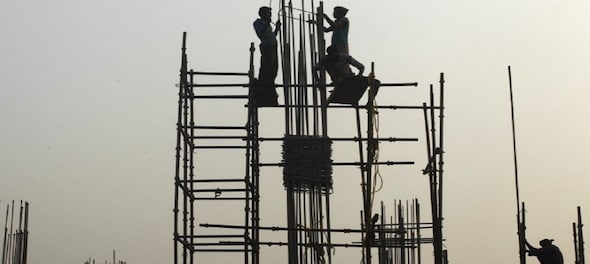
Infrastructure development is a key national agenda for long-term economic growth. In this regard, the upcoming Union Budget is expected to lay a high emphasis on infrastructure investment considering the National Infrastructure Pipeline (NIP), and churning of capital by way of monetising the assets identified under the National Monetisation Pipeline (NMP). Higher proceeds from the NMP will also help in bridging the gap in infrastructure financing, and reduce the over-dependence on budgetary support.
The central government is expected to continue with increasing capital outlay towards key infrastructure segments like roads and railways, in line with planned investments of Rs 111 lakh crore towards the projects covered under the NIP during from FY20 to FY25. The government is also expected to provide clarity on the current status of the NIP and its capex phasing over the next few years.
To meet the NIP funding, gross budgetary support towards infrastructure is expected to be increased by 15-20 percent with a focus on the road, railways and urban infrastructure segments.
Roads and highways, and railways are the two key sectors with the highest share of budgetary support from the government. It is expected to continue with the ongoing and planned projects. In the road sector, the pace of highway development is expected to continue under the flagship Bharatmala Pariyojana program. The budgetary allocation towards the NHAI is expected to be increased, keeping in view the increased capital outlay on various ongoing and planned national highway projects.
In railways, an increased expenditure is expected in core track infrastructure upgradation, as well as the High Speed Rail (HSR) and Dedicated Freight Corridor (DFC) projects. Higher private sector participation in railway station redevelopment projects can be envisaged with the recent policy approval for the levy of station development fees (SDF).
Increasing the avenues of financing infrastructure projects is also likely to be addressed in the Budget.
In the last Union Budget, the government had proposed and allocated funds towards setting up of a new Development Financial Institution (DFI). Subsequently, a DFI named National Bank for Financing Infrastructure and Development (NaBFID) was set up, and is expected to start lending to infrastructure projects in FY23. Similarly, the National Investment and Infrastructure Fund (NIIF) is also expected to gain traction with higher infrastructure investments, and would require budgetary allocations accordingly.
Despite the increase in budgetary allocations and support from financing institutions, given the sharp increase in the pace of infrastructure investment, there is expected to be a shortfall of 8-10 percent in the NIP. Significant asset monetisation is planned under the NMP, which can help bridge this shortfall in financing of the NIP.
According to NMP document, the central government’s infrastructure assets worth Rs 6 lakh crore are to be monetised over the 4-year period from FY22 to FY25. That is around 5.4 percent of the total infrastructure investment envisaged under the NIP. Roads and railways are two largest sectors with a total monetisation plan of Rs. 3.1 lakh crore. For FY23, the total value of assets planned to be monetised across sectors is Rs 1.6 lakh crore.
Overall, through a combination of increased budgetary allocation and planned asset monetisation, it is expected that the Budget will put strong impetus on infrastructure investments planned under the NIP.
--Abhishek Gupta is Assistant Vice President at ICRA. The views expressed in this article are his own.
Check out our in-depth Market Coverage, Business News & get real-time Stock Market Updates on CNBC-TV18. Also, Watch our channels CNBC-TV18, CNBC Awaaz and CNBC Bajar Live on-the-go!


2024 Lok Sabha Election | Which way the wind blows in the second phase
Apr 26, 2024 6:09 PM
Election Commission registers case against BJP's Tejasvi Surya for alleged violation of poll code
Apr 26, 2024 5:08 PM
2024 Lok Sabha Elections | Why Kerala is in focus as the second phase begins to vote
Apr 26, 2024 9:33 AM
Bengaluru Rural Lok Sabha election: Over 60% voter turnout recorded by 5 pm
Apr 26, 2024 9:11 AM

